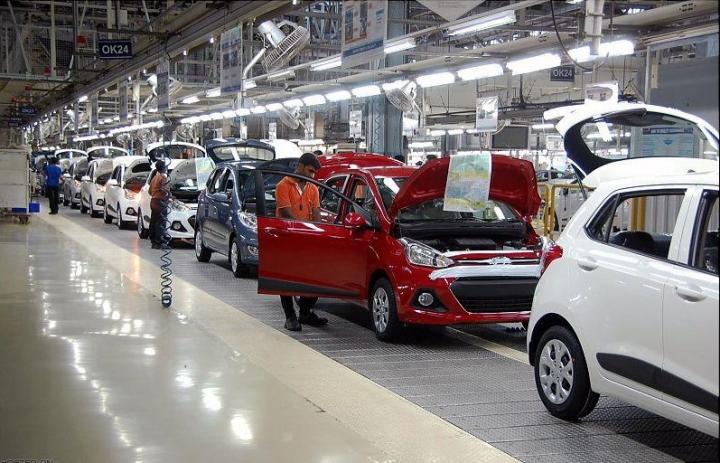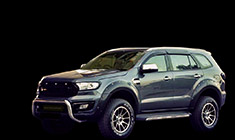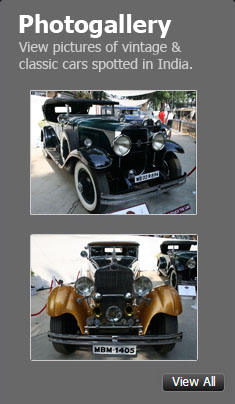News
Budget 2016 & Indian Cars: All you need to know
In the days leading up to the Budget, the PR machinery of car manufacturers was busy asking for tax concessions, vehicle scrappage schemes and more. "Keep dreaming", the Government said. No one at the center paid attention to their demands. The Government of India proved again that it views cars as big ticket items that it will tax the heck out of. After the FM's session was over, car manufacturers would rather have been ignored, as they were in 2015.
The 2016 Budget was mostly positive for the overall economy (including rural India), and there's also ~100,000 crore for road development through 2016-17. The FM stated that 85% of stuck road projects are back in action. However, the Budget left the auto industry sweating. Here's all you need to know:
- Cars have just gotten more expensive! This is over and above the price hikes that auto manufacturers rolled out in the new year. Effective immediately is a new 'infrastructure cess'. Citing pollution & traffic concerns, the FM has imposed an infrastructure cess of:
1% on sub-4 meter petrol, LPG & CNG cars with an engine <1.2 liters
2.5% on sub-4 meter diesel cars with an engine <1.5 liters
4% on all other cars (i.e. bigger cars & SUVs)
Please note that the above cess is ONLY applicable on factory dispatches from today. Thus, if your dealer tries to increase the price of a car that's already on his lot or in transit, tell him to take a hike.
Categories of vehicles exempt from this infrastructure cess include 3-wheelers, electric vehicles, hybrid vehicles, hydrogen fuel-cell vehicles, taxis, cars for the physically challenged and ambulances.
- From June 2016 onward, an additional 1% tax will be collected at the source (i.e. dealership) on all cars costing over Rs. 10 lakh. This is TCS (tax collected at source). If you are a tax-paying citizen (which you should be), the 1% TCS shouldn't make much of a difference as it will be credited back to you at the time of filing your income taxes. Dealerships will collect the tax, deposit it with the government and hand over a TCS certificate to you. This practice widens the tax base as there are a lot of evaders who buy million rupee cars, but don't file their returns!
Important to mention that manufacturers who have priced their best-selling variants at Rs. 9.95 lakhs (or in the whereabouts) stand to gain from the post-budget scenario. We can fully expect repositioned middle variants of popular sedans & SUVs.
The Price Impact:
The 1% infrastructure cess won't make much of a difference to the petrol hatchback segment. Think of a price impact of Rs. 3,000 on an Alto (or less than the cost of two tanks of fuel). The Swift petrol? Between Rs. 5,000 - 6,500.
The higher cess on small diesels makes the price difference between petrol & diesel hatchbacks / compact sedans wider by 1.5%. The 2.5% infrastructure cess makes your Grand i10 diesel pricier by ~15,000 rupees, while the fully-loaded Elite i20 diesel is now more expensive by about ~20,000 rupees.
It's cars over 4 meters in length or engines bigger than 1.2L P / 1.5L D that will see a greater impact. The Etios petrol, Maruti Ertiga, VW Vento, Mahindra Thar and gang just saw their prices shoot up by 4%. On a Rs. 9 lakh Skoda Rapid, the tag is heavier by Rs. 36,000.
Any car over 10 lakhs is usually over 4 meters in length and / or has bigger engines. These cars will attract not only the 4% infrastructure cess, but even the 1% TCS (tax collected at source). Again, remember that the TCS will be credited back to you at the time of paying your income taxes. Still, the net 5% hike means that your outflow for a Honda City has increased by Rs. 50,000. The same for an XUV500 AWD AT is a lakh! Eyeing a C-Class? Be prepared to shell out about 1.5 - 2 lakhs more at the time of purchase. An E-Class? Between 2.5 - 3.0 lakhs. S-Class? You probably won't bother with such small details.
Logistical Challenges:
While I personally support the 1% 'luxury car TCS', I'm not entirely convinced if it's a good idea to deposit the advance tax with the dealer. It does raise a number of concerns. For one, dealers are known for their carelessness and you should be prepared to follow up frequently with their accounting departments (for your TCS certificate). Then, considering how many organisations default on paying TDS, service tax etc., what happens if the dealership delays / doesn't deposit the tax with the government? It's just a logistical nightmare. Imagine what will happen if a customer pays the TCS amount to a loss-making dealership, who in turn uses that to pay salaries / other expenses and then shuts down? It would have been preferred if the car buyer could himself pay the TCS online and produce the certificate before the car goes for registration. Online tax payments today have a simple procedure that anyone can follow!
Other Highlights of the 2016 Budget:
- 2-wheeler manufacturers will be very pleased. No increase in taxes for them, while a stronger rural economy only means greater demand for their products.
- The FM said that private players will be permitted to enter the road transport sector. This could mean private companies operating public transport buses, thereby improving the overall competitiveness & efficiency of the sector. Further, the end of 'permit raj' where bus operators have to procure a permit for each route they ply on is welcomed. With the blessings of individual states, private bus operators could freely run on inter & intra state routes.
- The service tax rate will increase from 14.50% to 15% (new Krishi Kalyan cess of 0.5%). Servicing your car at an authorised dealer just got slightly more expensive.
- 200 crore grant for FAME & NATRiP (more info).
- No fresh round of incentives for EVs & Hybrids. This is strange as the Government otherwise seems so concerned about pollution. On the positive side, EVs, Hybrids & Hydrogen cars have been exempted from the new infrastructure cess. The FM has also continued the concessionary taxation regime for electric vehicles. The Nil basic customs duty and 6% excise / CVD regime on specific parts of electric and hybrid vehicles has been extended beyond 31st March 2016 (which is when it was expiring).
- Customs duty on the raw material used for catalytic converters has been reduced from 7.5% to 5%. However, the customs duty on the import of aluminium, aluminium products & zinc alloys has been increased.
- The incentives / weighted tax deduction on R&D expenses has been reduced from 200% to 150% from 1st April, 2017. It will further drop to 100% from 1st April, 2020. This isn't cool - R&D should be supported in every possible way.
- The import duty on golf carts goes up from 10% to 60%.
While the rest of the auto industry started whining, Dr. Pawan Goenka - Executive Director, M&M - aptly summed it up.
The Budget places strong emphasis on agriculture, rural economy, infrastructure and the social sector. This is what I was hoping for. The resurgence and thrust on the PPP in infrastructure is most welcome. I also appreciate laying down some very clear goal posts on farm income and on village electrification. Perhaps more could have been done for the financial sector and taxation, though staying with the FRBM target was an unexpected bold move and perhaps does put some spending constraints on the Government.
On the face of it, imposing upto 4% Cess for Passenger vehicles is a concern for the auto industry. However, one has to take it in stride, in view of all the priorities that we have for our economy and we in the industry have to manage it. Would have been good if some of the additional revenue from this cess was used to phase out older vehicles.







.jpg)






.jpg)




